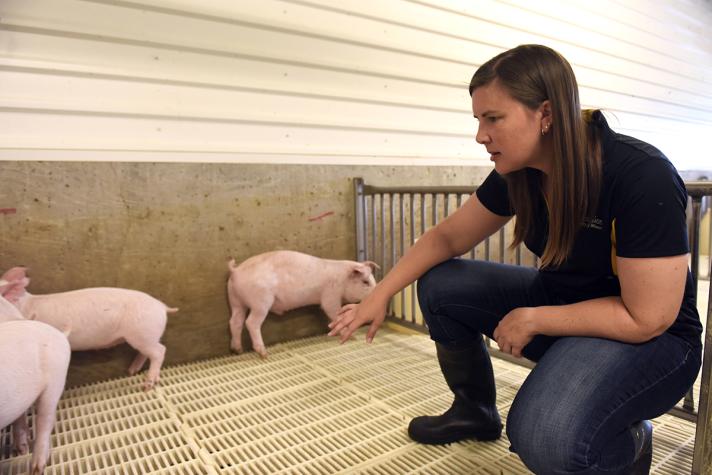COLUMBIA, Mo. – Earlier this year, highly pathogenic avian influenza infected dairy cattle in some states, though not in Missouri. Could the disease affect pigs?
Cory Bromfield, University of Missouri Extension swine veterinarian, said that it could happen. Low-pathogenic avian influenza has been detected in circulating swine strains five times from 1999 to 2015. Bromfield spoke about influenza in pigs at the recent Missouri Swine Health Symposium in Columbia.
Waterfowl are the main reservoir of H5N1 in the spread of infection to poultry operations, Bromfield said. Biosecurity for confinement hogs controls a lot of that risk, and, in general, waterfowl can’t get into swine barns, she said.
Pigs and humans are mixing vessels for influenza, and new forms can result from that mixing. Bromfield says this is why hog farmers already practicing biosecurity measures to protect from African swine fever and other diseases have an advantage: Pigs and workers should be vaccinated (although H5N1 protection is not in current vaccines), there are ventilation controls, recommendations are in place for masks and respirators to be used when animals have influenza-like illnesses, and workers with flu symptoms are told to stay home. Wearing dedicated barn attire and boots also is important to keeping out influenza.
USDA regularly carries out influenza virus surveillance, collecting isolates and, if needed, conducting gene sequencing, which could lead to specific vaccines.
In his remarks at the symposium, Patrick Webb, assistant chief veterinarian with the National Pork Board, said the board is working on a uniform response to H5N1 should it occur in pigs.
Bromfield said having a Secure Pork Supply Plan, which MU Extension can help with through the Rapid Access Biosecurity app, is one way to ensure facilities have evaluated their current biosecurity protocols, and it will likely also be important as part of a uniform response plan.
Photos
Corinne Bromfield
MU Extension swine veterinarian Corinne Bromfield speaking at the 2024 Missouri Swine Health Symposium in Columbia.
Corinne Bromfield
Corinne Bromfield, University of Missouri Extension swine veterinarian, inspects nursery pigs at the swine teaching barn near MU South Farm in Columbia. MU file photo.
Writer: Julie Harker
